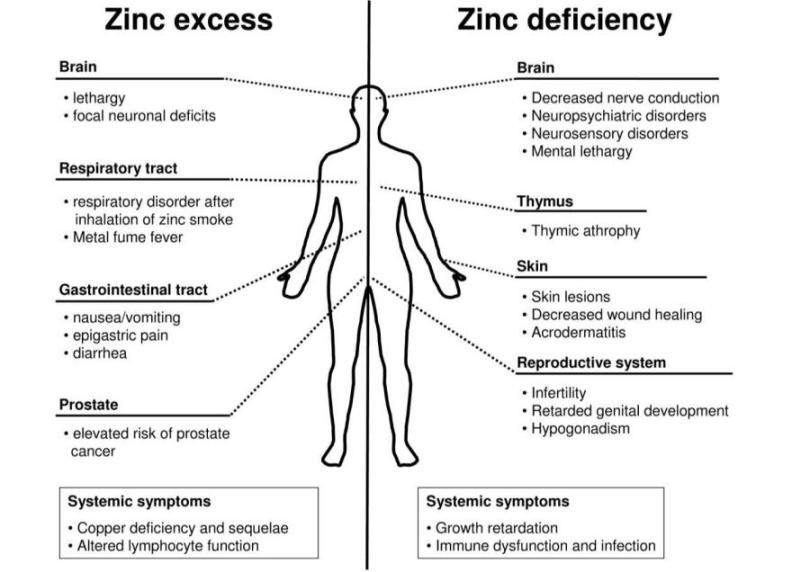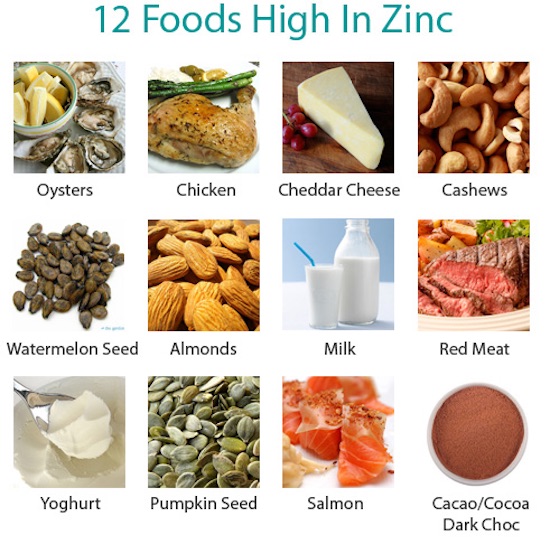Zinc is a nutrient that people need to stay healthy. Zinc is found in cells throughout the body. It helps the immune system fight off invading bacteria and viruses.
Why Do You Need Zinc?
The body also needs zinc to make proteins and DNA, the genetic material in all cells. During pregnancy, infancy, and childhood, the body needs zinc to grow and develop properly. Zinc also helps wounds heal and is important for proper senses of taste and smell.

Zinc preparations can protect against sunburn in the summer and windburn in the winter. Applied thinly to a baby’s diaper area (perineum) with each diaper change, it can protect against diaper rash.
The Age-Related Eye Disease Study determined that zinc can be part of an effective treatment for age-related macular degeneration. Zinc supplementation is an effective treatment for acrodermatitis enteropathica, a genetic disorder affecting zinc absorption that was previously fatal to babies born with it.
People need between 2 and 14 mg of zinc in their diet or supplement.
Sources of Zinc
Zinc is found in a wide variety of foods. You can get recommended amounts of zinc by eating a variety of foods including the following:
- Oysters, which are the best source of zinc
- Red meat, poultry, seafood such as crab and lobsters, and fortified breakfast cereals, which are also good sources of zinc
- Beans, nuts, whole grains, and dairy products, which provide some zinc
Other sources include fortified food and dietary supplements, which come in various forms. A 1998 review concluded that zinc oxide, one of the most common supplements in the United States, and zinc carbonate are nearly insoluble and poorly absorbed in the body.

This review cited studies which found low plasma zinc concentrations after zinc oxide and zinc carbonate were consumed compared with those seen after consumption of zinc acetate and sulfate salts. However, harmful excessive supplementation is a problem among the relatively affluent, and should probably not exceed 20 mg/day in healthy people, although the U.S. National Research Council set a Tolerable Upper Intake of 40 mg/day.
For fortification, however, a 2003 review recommended zinc oxide in cereals as cheap, stable, and as easily absorbed as more expensive forms.
A 2005 study found that various compounds of zinc, including oxide and sulfate, did not show statistically significant differences in absorption when added as fortificants to maize tortillas. A 1987 study found that zinc picolinate was better absorbed than zinc gluconate or zinc citrate
Zinc lactate is used in toothpaste to prevent halitosis. Zinc pyrithione is widely applied in shampoos because of its anti-dandruff function. Zinc ions are effective antimicrobial agents even at low concentrations.
Gastroenteritis is strongly attenuated by ingestion of zinc, and this effect could be due to direct antimicrobial action of the zinc ions in the gastrointestinal tract, or to the absorption of the zinc and re-release from immune cells (all granulocytes secrete zinc), or both



